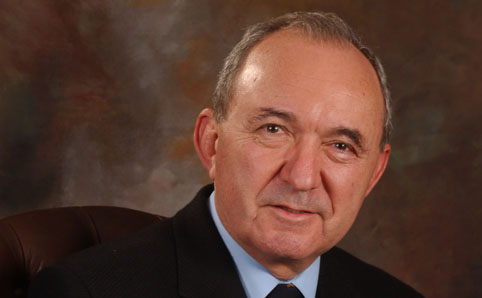Latest News Archive
Please select Category, Year, and then Month to display items
30 October 2018
|
Story Rulanzen Martin
|
Photo Peet van Aardt
 Some of the student writers who contributed to the anthology that tells their stories in Sesotho, isiXhosa, isiZulu, English and Afrikaans.
Some of the student writers who contributed to the anthology that tells their stories in Sesotho, isiXhosa, isiZulu, English and Afrikaans.
How do you transform the higher education curriculum? You involve the exact people the curriculum is intended for. The book, Initiative for Creative African Narratives (iCAN,) illustrates how decolonisation can be achieved through literature for students by students.
iCAN is an initiative by the Centre for Teaching and Learning (CTL) at the University of the Free State (UFS) to mentor students in creative and narrative writing. Under the mentorship of Dr Peet van Aardt, project coordinator, and Ace Moloi, author and UFS alumnus, iCAN Volume 1 was recently launched with 47 short stories written by UFS students.
“The project is a response from the centre for the ever-increasing need for decolonised curricula, steeped in the local cultural perspective of ubuntu,” said Dr Van Aardt.
“This book is an example for how decolonisation can be implemented,” said Prof Francois Stydrom, Senior Director of CTL. The overall aim of the iCAN project is to have the content that materialised from it to be included in the curriculum of first-year students at UFS in the near future.
Book provides multiple voices
Starting in May 2018, CTL presented a series of creative writing workshops on all three of the UFS campuses. “It’s a medium that allows a diverse range of students to express their views and develop their voices as writers,” said Prof Strydom.
It is a form of empowerment, to pass the baton to students to improve the UFS curriculum by writing and publishing their own stories, thereby contributing to larger bodies of knowledge through their lived experiences.
“I believe we as a university need to enable students so that they move away from just being users to becoming contributors to the curriculum,” Dr van Aardt concluded.
UFS awards honorary degree to Justice Richard Goldstone
2012-01-26
 |
| Justice Richard Goldstone |
A huge honour will be bestowed upon the University of the Free State (UFS) when the world renowned Justice Richard Goldstone will be receiving an honorary degree at the official opening of our university.
The Doctor of Laws (honoris causa) degree will be conferred on Justice Goldstone on Friday 3 February 2012 at 10:00 on our Bloemfontein Campus.
Mr Richard Freedman, Director of the South African Holocaust and Genocide Foundation, and Judge Mahube Molemela, Justice of the Free State High Court, are amongst the prominent figures expected to attend this event.
Justice Goldstone served in the Constitutional Court from 1995 to 2003. Prior to that, he was a judge of the High Court and from 1989 a judge of the Supreme Court of Appeal. From 1994 to 1996 he was the first Chief Prosecutor of the United Nations Criminal Tribunals for the former Yugoslavia and Rwanda. He is presently a Senior Fellow at the Jackson Institute at Yale University in the United States. Over the past 18 years he has become a leading expert on international criminal law.
Prof. Neels Swanepoel, Head of the Department of Law of Procedure and Law of Evidence, said the faculty is proud to honour Judge Richard Goldstone for his outstanding legal career and in particular for his contribution to the development of international criminal justice.
“As Chief Prosecutor for both the International Criminal Tribunal for the former Yugoslavia (ICTY) as well as the International Criminal Tribunal for Rwanda (ICTR), he has contributed to precedent-setting judgments on genocide, war crimes and crimes against humanity. His publications on various aspects of International Criminal Justice have contributed towards the stage where those bearing the greatest responsibility for human and humanitarian rights violations, will face justice.”
Prof. Swanepoel says judge Goldstone has contributed towards laying the foundations for conflict resolution in societies that have transformed from repressive to democratic rule and to what is now referred to as ‘transitional justice’.
On Thursday 2 February 2012 at 19:00, Judge Goldstone will deliver a Prestige Lecture on ‘The Future of International Criminal Justice’ in the Auditorium of the C.R Swart Building on the UFS Bloemfontein Campus.
Media Release
26 January 2012
Issued by: Lacea Loader
Director: Strategic Communication
Tel: 051 401 2584
Cell: 083 645 2454
E-mail: news@ufs.ac.za